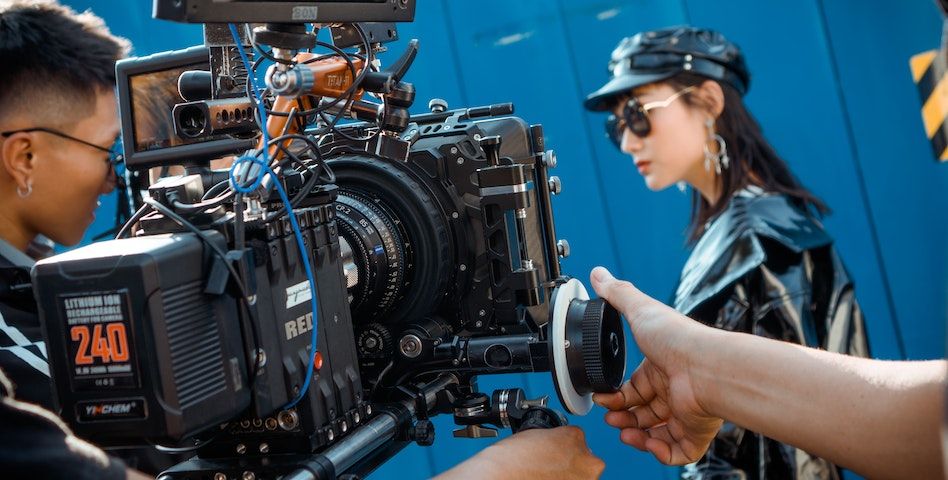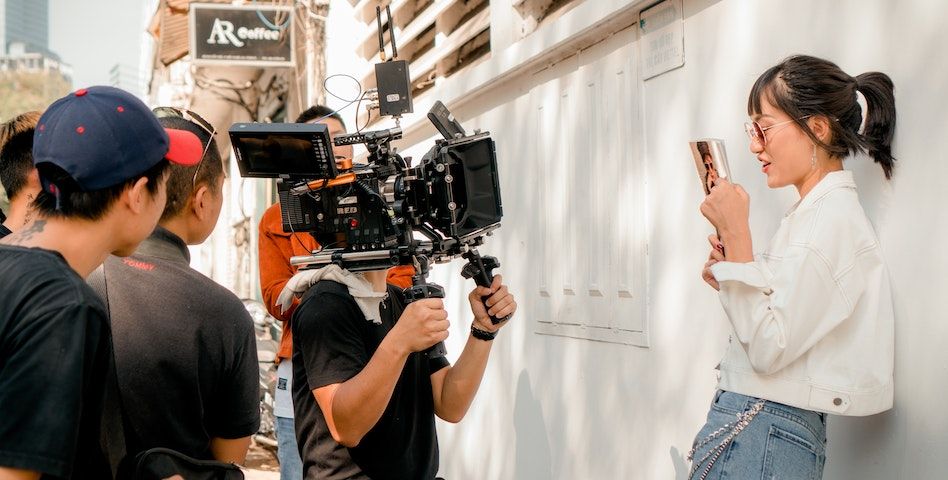As the cinematic world continues to evolve, the role of a filmmaker has expanded beyond technical proficiency. While technical skills are undeniably crucial, having a filmmaker's vision sets directors apart and elevates their work to an art form. Developing this vision requires a blend of creativity, storytelling acumen, and a unique perspective on the world. In this blog, we'll explore strategies to help you cultivate the vision of a filmmaker, making your journey into the director's mind a transformative and rewarding experience.
Seeing Beyond the Surface: Developing a Filmmaker's Vision
A filmmaker's vision involves the ability to see beyond the surface and capture the essence of a story. This goes beyond framing shots; it's about conveying emotions, themes, and messages through visual storytelling. To develop this skill, watch films from various genres, paying attention to how directors use visuals to communicate ideas and evoke feelings.
Strategy 1: Immerse Yourself in Storytelling
At its core, filmmaking is about storytelling. Engage with various forms of storytelling, such as books, plays, and even photography. Understanding narrative structures, character arcs, and themes will help you translate stories into captivating visuals.

Strategy 2: Study the Masters
Study the works of renowned filmmakers who have left an indelible mark on the industry. Analyze their films not only for technical aspects but also for their unique directorial signatures. Directors like Quentin Tarantino, Wes Anderson, and Christopher Nolan have distinct visual styles that reflect their filmmaker's vision.
Strategy 3: Develop Visual Literacy
Train your eye by studying art, photography, and visual compositions. Learning about principles like balance, contrast, and perspective will enhance your ability to craft visually striking scenes. This knowledge can guide your decision-making when setting up shots.
Making Direction Your Cup of Tea: Personalizing Your Filmmaker's Vision
Directing is not just about pointing a camera; it's about imbuing your work with your personal touch. As you refine your filmmaker's vision, consider what themes, motifs, or visual elements resonate with you and weave them into your storytelling.
Strategy 1: Define Your Style
Reflect on the elements that resonate with you. Is there a particular genre you're drawn to? Do you have a preference for certain color palettes? Defining your style gives your work a consistent and recognizable identity.
Strategy 2: Experiment and Innovate
Don't be afraid to step out of your comfort zone. Experiment with different visual techniques, camera angles, and editing styles. Innovating allows you to discover new ways to express your filmmaker's vision and keep your work fresh and exciting.
Learning Complementary Skills: Expanding Your Toolkit for Filmmaking
While developing a filmmaker's vision is central, mastering complementary skills is equally essential. These skills contribute to the holistic filmmaking process and enrich your creative output.

Strategy 1: Screenwriting
Understanding the fundamentals of screenwriting is invaluable for a filmmaker. A solid script is the foundation of a successful film. Learn to craft compelling dialogues, engaging plotlines, and well-developed characters.
Strategy 2: Cinematography
Cinematography is the art of capturing visuals through the lens. Learning about camera angles, lighting, and shot composition empowers you to translate your filmmaker's vision into striking images.
Strategy 3: Editing
Editing is where the magic happens. It's the process of piecing together footage to create a cohesive narrative. Learning the art of editing allows you to shape the pacing, rhythm, and emotional impact of your film.
Strategy 4: Sound Design
Sound plays a crucial role in storytelling. Understanding sound design helps you create an immersive experience, enhancing the emotional resonance of your work.
Conclusion
Developing the vision of a filmmaker is a dynamic journey that intertwines creativity, storytelling, and technical skills. By immersing yourself in storytelling, studying the works of cinematic masters, and honing your visual literacy, you can refine your filmmaker's vision and create films that resonate with audiences on a deeper level.
Remember that personalizing your directorial approach and mastering complementary skills like screenwriting, cinematography, editing, and sound design expand your toolkit and elevate your filmmaking prowess. As you embark on this creative odyssey, you're not just crafting films; you're crafting experiences that inspire, entertain, and provoke thought.

Final Words
Developing the vision of a filmmaker is a dynamic journey that intertwines creativity, storytelling, and technical skills. By immersing yourself in storytelling, studying the works of cinematic masters, and honing your visual literacy, you can refine your filmmaker's vision and create films that resonate with audiences on a deeper level. Remember that personalizing your directorial approach and mastering complementary skills like screenwriting, cinematography, editing, and sound design expand your toolkit and elevate your filmmaking prowess.
And if you're a creative individual hungry to absorb content from various perspectives, and if you want to explore one of the largest media companies in the world. Paramount is a gateway to embrace the art and craft of storytelling, view various filmmakers’ vision on a grand scale, and consume the best content. So, if you're intrigued by the magic of cinema and the power of visual storytelling, the path of a filmmaker is waiting for you to tread upon it.